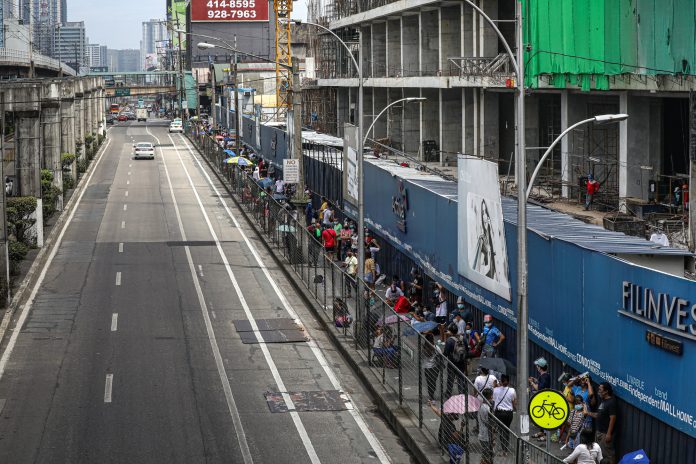The Philippine government announced that it is placing the capital region and four adjacent provinces under a less restrictive community quarantine status from April 12.
Metro Manila and the provinces of Bulacan, Rizal, Laguna and Cavite, which have been in a strict lockdown due to COVID-19 infections, will be under “modified enhanced community quarantine” status until April 30.
One of the basis in the decision to downgrade the quarantine classification was the commitment of hospitals to increase COVID-19 beds, especially those in intensive care units.
Most of the country will be placed under the less stringent “modified general community quarantine.”
The national capital and nearby provinces were placed under the “enhanced community quarantine” on March 29 due to the exponential increase of COVID-19 cases in the area.
An independent research group has earlier called on the government to extend the prevailing strict community lockdown to contain the spread of COVID-19.
The OCTA Research Group said on April 10 that “there is hope” that the spread of the virus in the national capital region will go down if the strict health protocols will continue.
The group said the “enhanced community quarantine” in the capital and nearby provinces in the past two weeks was effective in reducing the growth rate and reproduction number of the virus.
OCTA said it observed negative one-week virus growth rates in several cities of Metro Manila after the two-week lockdown, adding that the trend was “very encouraging.”
The group, however, said it was still too early to say whether there was a downward trend, noting that testing was lower in the past weeks.
OCTA noted an overall decrease in the reproduction number of the virus in Metro Manila—from 1.88 percent before ECQ was imposed on March 29 to 1.23 percent during its second week.
But it said the reproduction number in the national capital still indicated that “significant viral transmissions continue.”
“The average daily number of new cases of COVID-19 in the NCR Plus is still very high at 5,000 a day,” it said.
OCTA, a group of academics mostly from the University of the Philippines who have been observing the pandemic since last year, recommended the extension of the ECQ.
The group said it will continue “to slow down the surge, decongest our hospitals and relieve the pressure on our health-care workers.”
It said that opening up the capital prematurely “would be a significant risk as it could accelerate the surge again.”
The group said if ECQ extension cannot be considered for socioeconomic reasons, “we are suggesting a minimum of two weeks of modified ECQ.”
Meanwhile, the Department of Health reported on Saturday 12,674 new COVID-19 infections, the most on a single day since the pandemic struck the country last year.
In Metro Manila, 86 percent of the intensive care unit beds are occupied while 59 percent of mechanical ventilators are in use, according to the Health department.









